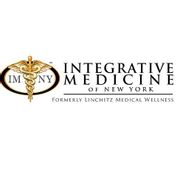A Guide to HIV & AIDS

Receiving an HIV or AIDS diagnosis can be overwhelming, but, thankfully, there is hope. While there is no cure yet, advancements in medical science and technology allow patients to live fulfilling lives despite their condition. Understanding these conditions, how they occur, and how to cope with them can help you whether you have been diagnosed or are concerned about the risk of contracting an infection.
What Is HIV?
Human immunodeficiency virus, or HIV, is a virus that attacks the immune system, killing T cells. These cells protect the body from infections, cancers, and other illnesses. Without them, a person is more vulnerable to getting sick. If untreated, HIV can turn into acquired immunodeficiency syndrome (AIDS).
While HIV is not curable, it is treatable. With medical care, HIV-positive people can live long, healthy lives. HIV is transmitted through blood, semen, vaginal and rectal fluids, and breast milk. Symptoms can include fever, chills, rash, muscle aches, sore throat, fatigue, swollen lymph nodes, night sweats, and mouth ulcers.
 Not everyone with HIV has symptoms, which is why testing is crucial, particularly for anyone who has had unprotected sex or shared drug or tattoo needles.
Not everyone with HIV has symptoms, which is why testing is crucial, particularly for anyone who has had unprotected sex or shared drug or tattoo needles.
What Is AIDS?
A doctor typically diagnoses an HIV-positive person with AIDS when their T cell count is below 200 cells/mm. At this point, people are highly vulnerable to severe illnesses, also known as opportunistic infections. The virus leaves the body unable to fight these infections, so even a mild cold or flu can become fatal.
Available Treatments
There is currently no cure for HIV or AIDS, although medical scientists worldwide are working to develop one. Treatments are available to slow the progression of the disease and ease symptoms.
Regardless of what stage of HIV a person has, they may benefit from antiretroviral therapy (ART). This typically consists of three or more medications from different drug classes used to reduce the level of infection in the blood. Each drug in the combination has a role in blocking the virus, so it is necessary to use them together. ART does not make a person non-infectious.
People with HIV or AIDS can still transmit the virus to other people. However, treatment can significantly improve a person’s quality of life and life expectancy.
If you are concerned about these diseases, the compassionate and knowledgeable team at Integrative Medicine of New York, PLLC in Garden City, NY, can help. This integrative medicine and immunotherapy provider serves patients throughout Long Island and New York City. It offers comprehensive testing and treatments for a range of conditions, from COPD to cancer. Call (516) 759-4200 to schedule an appointment. Visit the website to learn more.
About the Business
Have a question? Ask the experts!
Send your question

